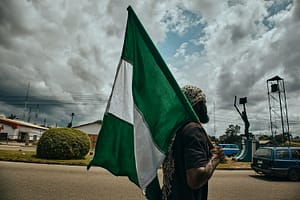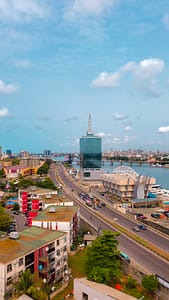
Many Nigerians are living in a state of heightened anxiety and dissatisfaction, a situation attributed to valid concerns like widespread hunger, soaring inflation, rampant insecurity, and a palpable sense of national distress. The result is a growing sense of frustration across the country, a dangerous mix of hunger and anger that could potentially ignite widespread social unrest, reminiscent of historical populist revolts.
The evidence is clear that the volatile mix of hunger and anger can lead to chaos. Instances in cities like Minna, Suleja, Kano, and Osogbo, where residents recently protested the acute hunger in Nigeria, underscore the urgency of the situation. Without timely and effective government intervention, more cities might follow in expressing their discontent, especially after Nigeria’s loss in Afcon Finals.
Amid these pressing economic challenges, the Nigeria Labour Congress (NLC) and the Trade Union Congress (TUC) have issued a two-week ultimatum to the federal government, demanding the implementation of measures to mitigate the adverse effects of its economic policies on the populace. This call to action stems from the government’s failure to fulfill a 16-point agreement aimed at alleviating the widespread suffering and harsh socio-economic conditions in the country.

The grim economic landscape has led to a surge in poverty, making it increasingly difficult for individuals and families to afford basic necessities such as food, shelter, healthcare, and education. This economic strain not only deepens social inequalities but also takes a significant toll on mental health, exacerbating stress, anxiety, and other psychological issues. The economic downturn undermines social cohesion, fuels community tensions, and could lead to social unrest as frustration over economic disparities and lack of opportunities grows.
Moreover, Nigeria’s economic instability is deterring investor confidence, highlighted by one of the most severe exchange rate fluctuations in history, crippling small businesses and threatening the economy’s backbone.
The recent AFCON football tournament offered a temporary reprieve from the brewing national discontent, uniting citizens in their passion for football and providing an emotional outlet amid economic hardships. History has shown that sports, particularly football, can offer solace and a sense of community during times of distress. However, with the tournament concluded, there’s a pressing need for the government to address the underlying economic and social issues to prevent a potential escalation of unrest.
The government must adopt a multifaceted approach to tackle economic hardship, involving policy reforms, anti-corruption initiatives, economic diversification, and investment in key sectors such as education and infrastructure. Targeted social welfare programs, healthcare, education, and community development projects are crucial for improving living standards and building resilience against economic adversities.
Post-AFCON, the government faces the critical challenge of addressing the economic grievances of its citizens to prevent the euphoria from giving way to heightened dissatisfaction and potential upheaval. It’s a pivotal moment for Nigeria, requiring urgent, inclusive, and innovative solutions to navigate out of economic hardship and towards a more stable and prosperous future.

[…] Read Also: AFCON 2023: Reality After In Nigeria […]